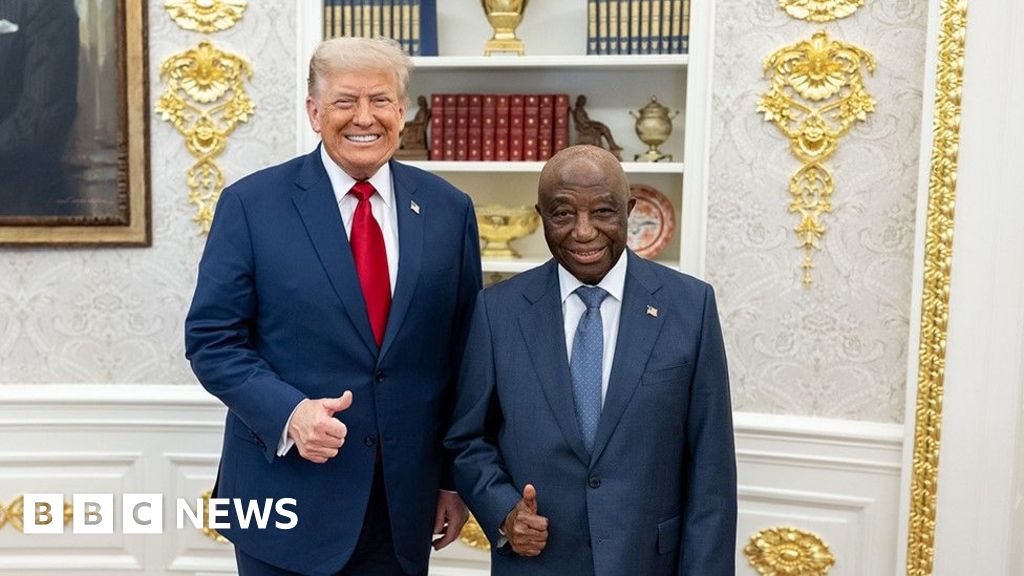A Glimpse into Liberia's Unique American Heritage and Inspiring Leaders

In a recent meeting, US President Donald Trump expressed admiration for Liberian President Joseph Boakai's eloquence in English, shedding light on a unique and historical bond between Liberia and the United States. This moment underscores not only the linguistic connection but also the deep-rooted ties that have shaped Liberia's identity over the years.
The Historical Connection
Founded by freed African-American slaves in 1822, Liberia became a symbol of hope and a new beginning. Its official language is English, a reflection of its historical connections with the US. The founding of Liberia in 1847 and the continued influence of American culture in the country highlight the legacy of African-American resilience and excellence.
Monrovia, Liberia's capital, named after fifth President James Monroe, exemplifies this connection with its architecture resembling American styles and streets named after colonial figures. The close resemblance of Liberia's flag to that of the US, featuring 11 alternating stripes and a single white star, symbolizes its place as the first independent republic in Africa.
Celebrating Inspirational Figures
Among Liberia’s remarkable leaders is Ellen Johnson Sirleaf, the first elected female president in Africa. Her tenure from 2005 to 2018 marked a period of significant progress following the civil war. Sirleaf is internationally recognized for her efforts to maintain peace and promote women's rights, earning her a Nobel Peace Prize alongside two other activists in 2011. Her journey is an inspiring testament to leadership and resilience in the face of adversity.
Additionally, the legacy of former President George Weah, a football legend and Ballon d'Or winner, continues as his son Timothy Weah makes strides in professional football, proudly representing both Liberia and the US. His achievements remind us of the potential that lies in both Liberian and American heritage.
Looking to the Future
As Liberia continues to embrace its rich heritage, discussions around the mutual understanding and respect between nations become increasingly important. The recent interactions between US leadership and Liberian representatives can serve as a foundation for a deeper appreciation of Liberia's history and contributions to the global community.
In closing, the dialogue initiated by President Trump regarding President Boakai's English skills opens avenues for reinforcing the shared history between the United States and Liberia. It is a reminder that understanding each other’s cultures and stories is essential in fostering stronger international relationships.